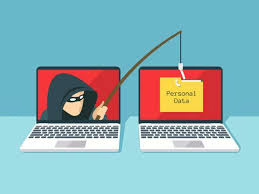Delving into the realm of web security can be daunting. There are often countless ways for malicious actors to compromise your personal information, making each online session a potential risk.
Viruses and malware have become increasingly sophisticated and are spreading at alarming rates. A simple click on an innocuous link—whether embedded in a web page or lurking in an email—can unleash a wave of problems.
Once infected, your computer may exhibit troubling signs like sluggish performance and relentless pop-up ads. In some cases, it might even download rogue programs without your consent, putting your sensitive data in jeopardy.

Moreover, navigating web security isn’t static; it’s dynamic and ever-evolving. Just when you believe you’ve fortified your defences, new threats emerge from the shadows. Cybercriminals continuously innovate their tactics to infiltrate systems.
Staying informed and vigilant is crucial to protecting yourself effectively. If you don’t adapt and keep pace with these changes, you risk encountering severe consequences down the line.
In an age of ever-evolving digital threats, the temptation to unplug your computer and retreat from the online world can be overwhelming. However, instead of taking such drastic measures, investing just a few minutes into secure browsing practices can go a long way toward safeguarding your device and personal information.

First and foremost, consider installing antivirus software. Security experts universally endorse this as a vital first line of defence. A robust antivirus program is designed not only to detect existing viruses but also to prevent new infections from taking root. Take the time to research various options available; choose one that aligns with your specific needs and preferences, then ensure that it operates consistently in the background.
Next, protect yourself further by using a firewall. This crucial application serves as a barrier between your computer and potential intruders on the internet. By setting up a personal firewall, you significantly reduce the likelihood of unauthorised access or attacks from cybercriminals intent on infiltrating your system.
By implementing these simple yet effective measures, you create layers of defence that bolster your online security. Remember, staying safe while browsing isn’t just about avoiding risks—it’s about actively managing them with informed choices.

Update Your Security Software Regularly
In the ever-evolving landscape of cybersecurity, installing your security software is merely the first step. Think of it as laying the foundation for a sturdy fortress; however, without regular reinforcement, even the most muscular walls can crumble. Cybercriminals are relentless, continuously devising new methods to bypass defences and exploit vulnerabilities. They deploy sophisticated malware that can wreak havoc on personal data and corporate networks alike.

Exercise Caution with Links in Messages
To counter these threats effectively, software developers work tirelessly to create updates that patch security holes and enhance system capabilities. Each update you receive is a vital defence mechanism against emerging dangers. Therefore, it’s crucial to prioritise these updates and install them promptly whenever they become available. Ignoring this responsibility could leave you vulnerable to countless potential attacks.

Another critical aspect of maintaining cybersecurity involves being vigilant about links in emails or instant messages. In today’s hyper-connected world, malware often spreads like wildfire through such links. Even if a link appears benign and comes from someone you know, there’s a possibility that their account has been compromised without their knowledge.
Curiosity can be tempting—who wouldn’t want to click on an intriguing link? But remember that just one wrong click can lead you down a treacherous path filled with viruses and phishing scams designed to steal sensitive information. Constantly scrutinise any link before clicking; verify with the sender if necessary, especially when something feels off. By exercising due diligence in this area, you’re taking an essential step towards safeguarding your digital life.

In today’s digital age, exercising caution while navigating the internet is more crucial than ever. Clicking on random links can open a Pandora’s box of problems. Free toolbars that promise enhancements, enticing pop-up windows offering free giveaways, and even seemingly harmless sidebar ads can lead to malware infections or phishing scams. It’s wise to think twice before engaging with them; often, those enticing offers simply aren’t worth the risk.
Moreover, safeguarding your online experience requires vigilance in everyday actions. One simple step is to bookmark important websites you visit frequently. This practice not only saves time but also protects you from potential dangers lurking in mistyped URLs. A slight error could send you spiralling into a malicious domain designed to mirror legitimate sites, tricking unaware users into disclosing personal information.

By bookmarking trusted addresses, you’re ensuring consistent access each time and steering clear of hazardous faux websites. The peace of mind that comes with navigating safely is invaluable in traversing an increasingly treacherous digital landscape. Prioritise your online security—your future self will thank you.
In today’s digital age, it’s vital to understand that the precautions you take to safeguard your physical self must also apply to your online presence. Every time you engage with the internet, whether for work or personal enjoyment, remember that your personal information is a treasure trove for those with malicious intent.
Never share sensitive details unless you are entirely confident in the security of the platform or website you’re using. Just as you’d think twice before revealing your address to a stranger on the street, exercise similar caution online.

Public wireless hotspots, like those found in coffee shops or libraries, can pose significant risks. The information you send over these networks travels openly and can easily be intercepted by prying eyes. It’s akin to shouting private conversations in a crowded room—every passerby can hear.
To illustrate this point further, imagine leaving your debit card on the dashboard of an unlocked car; it would only take a moment for someone to snatch it away. Likewise, sharing personal data carelessly online makes it all too accessible to potential identity thieves.
The digital world may feel casual and safe but always approach it with vigilance and awareness. Protecting yourself online is just as important as safeguarding your valuables in real life. Make wise choices about what you share and where you share it; it’s the first step towards maintaining your privacy and security in this interconnected landscape.

Maxthon
In the vast landscape of online businesses, the Maxthon Browser stands out as a remarkably secure and reliable option for individuals who prioritise their safety while exploring the internet. This browser utilises advanced encryption methods and implements solid anti-phishing strategies to protect users’ personal and financial data from a wide array of potential threats lurking in the digital environment.
One of its standout features is its highly effective ad blocker, which removes disruptive advertisements, leading to a more fluid and focused browsing experience. Additionally, Maxthon includes a privacy mode specifically crafted to shield sensitive information from unwanted scrutiny. This extra layer of protection acts as a powerful barrier against unauthorised access to your data.
In today’s world, where digital threats are everywhere, such security measures are not merely advantageous—they are absolutely crucial. Every interaction within the expansive realm of the internet carries with it the risk of revealing personal information to those who may be monitoring your online behaviour. Hence, the need for robust security protocols has never been more urgent.
With Maxthon’s privacy mode engaged, users can explore online content with greater assurance. It effectively blocks tracking efforts by third-party advertisers while keeping their browsing history secure from potential intruders. This elevated level of protection allows individuals to navigate the web freely without constant worry about being watched by anyone attempting to compromise their privacy.
As concerns about data breaches and online surveillance continue to grow, browsers like Maxthon evolve from simple navigation tools into essential guardians of our digital existence. Ultimately, Maxthon offers users peace of mind as they journey through the intricate web of online interactions, empowering them to maintain control over their personal information in an age marked by increasing security threats.
